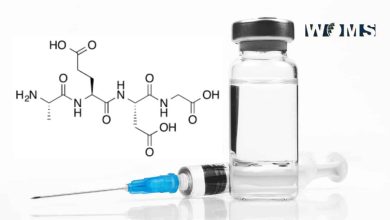The Importance Of Regular Health Check Up

There is no denying that regular health check-ups provide a window into your health status and help you combat the onset of certain diseases.
Yet, you would be surprised as to how many people still need to go for regular health check-ups. So let us quickly go through the EXACT reasons WHY regular health screenings are pivotal to your longevity, overall well-being, health, happiness, and life.
Health Screenings 101
Health screenings are medical tests that check for diseases before you exhibit any symptoms. Early detection through screenings often means easier management of conditions and better outcomes.
For instance, catching hypertension (high blood pressure) early can help prevent heart disease, while early detection of diabetes can help in managing blood sugar levels more effectively, thus avoiding further complications.
Thus, regular health screenings are a non-negotiable part of your life.
Key Screenings To Include In Your Health Routine
- Blood Screenings: Comprehensive blood tests can provide much information about your body. A complete blood count (CBC) can help detect a variety of blood diseases and other health issues. A lipid profile helps assess cardiovascular risk by measuring cholesterol levels, and a liver and kidney function test can check how well these organs are working. Not to mention, screening for thyroid function is also vital as it affects metabolism. Blood screenings can also help detect STDs.
- Diabetes Screening: Adults should consider being screened for diabetes every three years starting at age 35, especially if they are overweight or have other risk factors, by measuring fasting blood sugar levels and tests that provide an average blood sugar level over the past 2 to 3 months. Alongside this health consideration, starting a journey towards weight loss in Leicester, London, or any other big city can be daunting, but it will be well worth the effort. Your health will thank you.
- Blood Pressure Screening: High blood pressure is a silent killer because it often has no obvious symptoms but can lead to severe health complications like stroke, heart attack, and kidney damage. Regular monitoring can help catch and manage elevations early through lifestyle changes or medication.
- Cancer Screenings: Depending on your age, gender, and family history, certain cancer screenings may be recommended. These may include mammograms for breast cancer, colonoscopies for colorectal cancer, and Pap tests for cervical cancer. Early detection plays a crucial role in successfully treating cancer.
- Bone Density Screening: As we age, the risk of osteoporosis increases, making bone density tests crucial, especially for postmenopausal women and men over 50. These screenings help to assess the strength of your bones and the risk of fractures.
- Cholesterol Screening: Since high cholesterol does not usually cause symptoms, a regular blood test is the only way to know your cholesterol level. It is recommended that adults aged 20 or older have their cholesterol measured at least once every five years.
How To Get Started With Regular Screenings
- Consult Your Doctor: Your primary care physician can recommend which screenings are appropriate for you based on your age, sex, family history, and overall health status.
- Schedule Regular Check-Ups: Make appointments for annual physicals where most of these screenings can be done. Discuss any concerns you have with your doctor during these visits.
- Keep Track of Your Health Data: Maintain a personal health record where you track all your test results, doctor’s notes, and any other health-related information. This helps monitor changes over time and facilitates discussions with your healthcare provider at Healand Clinic or the clinic in the area of your choice.
Making The Most Of Your Screenings
To truly benefit from regular health screenings, it’s important to follow through on the advice and recommendations provided by your healthcare provider. If a screening identifies a potential health issue:
- Follow-up: Ensure you understand the next steps, whether it’s additional testing, a specialist visit, or lifestyle modifications.
- Adopt Healthier Habits: Often, screenings reveal areas where lifestyle changes can significantly impact your health. This might include eating healthier, exercising, quitting smoking, or managing stress.
- Stay Informed: Educate yourself about the conditions or risks identified through screenings. Understanding the issues can help you make better health decisions.
To Sum It Up
Regular health screenings are vital to proactive health management, helping you maintain your well-being. By identifying potential health issues early, these screenings facilitate timely interventions, significantly improving health outcomes.
Taking charge of your health extends beyond routine doctor visits; it involves making informed choices that enhance your overall health. Prioritise these screenings and collaborate closely with your healthcare provider to effectively manage and monitor your health.




